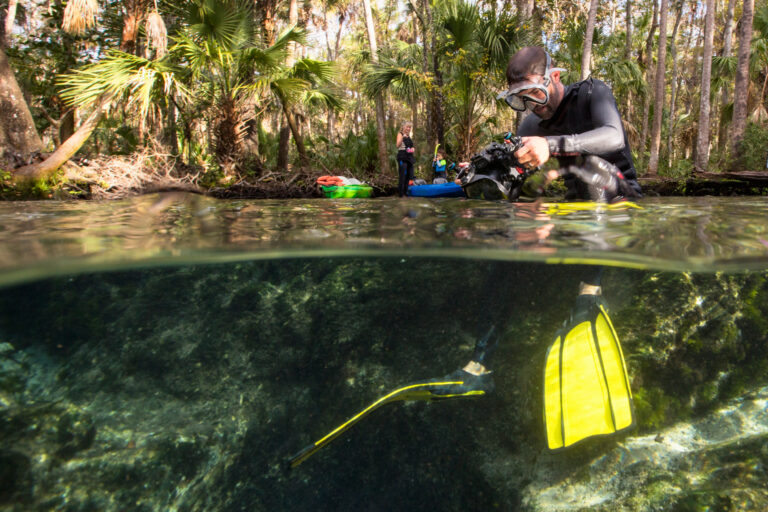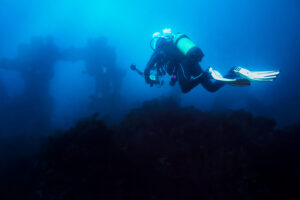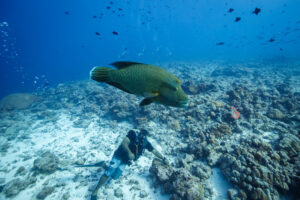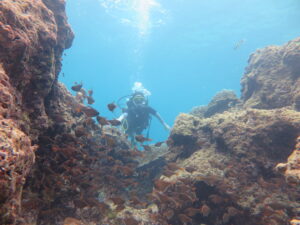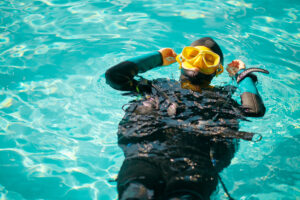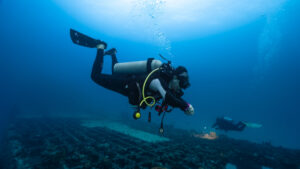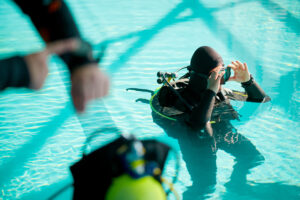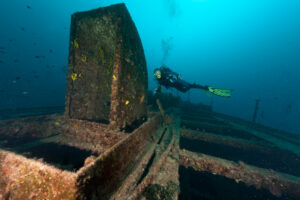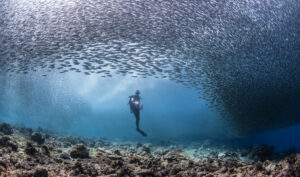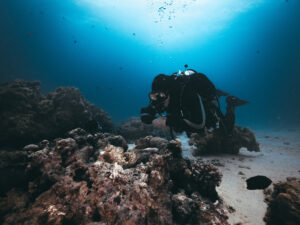What is Australian Diver Accreditation Scheme (ADAS)?
Founded in Australia, the Australian Diver Accreditation Scheme (ADAS) stands out as a pioneering international commercial and occupational diver certification scheme. Its core mission is to promote, develop, and maintain global standards for safety in diving and hyperbaric operations. Since its inception, ADAS has grown from a national body into a noteworthy global authority, overseeing training and accreditation across several countries and continents.
ADAS aims to foster the safety and competency of commercial divers through its world-class training programs, rigorous certification process, and stringent safety guidelines. While its roots lie in the blue waters of Australia, the influence of ADAS spreads across oceans worldwide, reflecting its universal appeal and commitment to excellence in the field of professional diving.
Historical Background
Established in the 1990s, ADAS was initially formed in response to the Australian Government’s requirement for standardized training and certification of occupational divers. The lack of uniformity in diver training led to an urgent need for a comprehensive, national accreditation scheme. ADAS quickly filled this gap, establishing a set of benchmarks that have since shaped the Australian diving industry.
In the subsequent decades, the scope of ADAS extended beyond the shores of Australia, gaining international acceptance. Through active engagement with the International Diving Regulators and Certifiers Forum (IDRCF), ADAS contributes to establishing global standards for commercial and occupational diving. This expansion has entrenched ADAS as a leading voice in the international diving community.
Range of Certification Courses
The ADAS training framework offers a broad spectrum of certification levels to cater to various commercial and occupational diving activities. Starting from the ADAS Part 1, divers can progress through more advanced certifications, each designed to develop and test particular sets of skills required for different underwater tasks.
ADAS Part 1
The ADAS Part 1 serves as the initial level of certification, suitable for divers conducting limited work in low-risk environments. The training focuses on the basic principles of diving, the use of diving equipment, and safety procedures, preparing the divers for a career in the shallow-water industry.
The ADAS Part 1 qualification is highly versatile, opening doors to several employment opportunities within the aquaculture, media, and civil construction sectors, among others. Divers can also take up scientific and archaeological diving tasks after earning this qualification, reinforcing the broad utility of ADAS Part 1.
ADAS Part 2
Divers seeking to tackle more challenging underwater tasks can opt for the ADAS Part 2, the intermediate level of certification. This course extends the depth range of the diver and introduces surface-supplied diving equipment, fostering a higher level of proficiency and safety.
The ADAS Part 2 is well-regarded in various sectors, including offshore oil and gas, salvage, and underwater construction. Its rigorous training components and the extended scope of work make it a popular choice for divers seeking career advancement.
Global Recognition
Given its commitment to the highest standards of training and safety, ADAS has secured widespread recognition and respect within the global diving industry. ADAS-certified divers are acknowledged for their robust skills, professionalism, and a deep understanding of safe diving practices.
International Endorsements
On an international level, ADAS is recognized by the International Maritime Contractors Association (IMCA), the body that regulates offshore, marine, and underwater engineering companies. Additionally, the IDRCF, an assembly of world diving regulatory bodies, also recognizes ADAS certifications.
Moreover, several international agreements permit the seamless transfer of ADAS qualifications between participating countries. This harmonization of certifications fosters the global mobility of ADAS-certified divers, a vital factor for a career in the dynamic commercial diving industry.
Industry Recognition
Within the diving industry, the ADAS qualifications are held in high regard. From offshore oil and gas operations to underwater construction projects, ADAS-certified divers are in demand for their top-tier training and demonstrated commitment to safety. The Scheme’s strong relationships with industry employers have also been instrumental in fostering the professional development of its divers.
Quality Assurance
Maintaining a high standard of training and certification is at the forefront of ADAS’s operations. To ensure the quality and relevance of its programs, ADAS has instituted a comprehensive quality assurance process.
Accredited Training Establishments
ADAS delivers its training programs through a network of Accredited Training Establishments (ATEs) globally. These ATEs must meet stringent criteria to gain and maintain their accreditation, guaranteeing a consistent, high-quality training experience.
Moreover, the ATEs are regularly audited to ensure they continue to deliver training that complies with ADAS’s standards. This stringent oversight ensures that every ADAS-certified diver has undergone rigorous training to achieve their qualification.
Regular Curriculum Review
The ADAS curriculum is regularly reviewed and updated to align with evolving industry practices and advancements in diving technology. This commitment to staying abreast of the latest developments ensures that ADAS divers are equipped with the most current knowledge and skills.
ADAS also solicits feedback from industry stakeholders, ensuring its training remains relevant to employer needs. This industry-responsive approach has enabled ADAS to keep pace with the fast-changing demands of the commercial and occupational diving sectors.
Career Opportunities for ADAS-Certified Divers
The versatility of ADAS certifications opens up a plethora of career paths for divers. From performing routine maintenance tasks in shallow waters to managing complex operations in offshore settings, the opportunities for ADAS-certified divers are vast and diverse.
Offshore Oil and Gas Industry
With the ADAS Part 2 and higher certifications, divers can access rewarding career opportunities in the offshore oil and gas industry. These divers perform a range of critical tasks, such as underwater welding, pipeline maintenance, and salvage operations. The high-risk environment and the complex nature of tasks make ADAS certification an essential requirement in this sector.
Inland/Inshore Diving
For those equipped with ADAS Part 1 and 2 certifications, the inland/inshore diving industry provides a multitude of opportunities. ADAS-certified divers find employment in sectors like civil engineering, dam maintenance, and aquaculture. The versatility of the ADAS certification allows divers to adapt to a variety of underwater work scenarios, from infrastructure inspections to marine life management.
Impact of ADAS on Diver Safety
The profound impact of ADAS on diver safety cannot be overstated. The Scheme’s rigorous training programs and the uncompromising commitment to safety have played an instrumental role in reducing diving-related accidents and fatalities.
Improved Safety Practices
Through its comprehensive training, ADAS has elevated safety practices in commercial and occupational diving. Divers trained under ADAS are well-versed in risk management and emergency procedures, thereby minimizing the potential for accidents.
Reduction in Diving-Related Accidents
The emphasis ADAS places on safety has contributed to a significant decrease in diving-related accidents. Its rigorous certification process ensures only competent divers are certified, which in turn enhances overall safety in diving operations globally.
As ADAS continues to shape the world of commercial and occupational diving, it stands as a testament to the transformative power of rigorous training and a steadfast commitment to safety.
Continuing Professional Development
ADAS is not only focused on initial training and certification but also advocates for the continuing professional development of its divers. It promotes the idea of lifelong learning as a means of enhancing skills, staying updated with industry advancements, and maintaining the highest standards of safety.
Advanced Certification Courses
To support professional growth, ADAS provides several advanced certification courses. These courses are designed for divers looking to specialize in certain areas of work, like underwater welding, non-destructive testing, or saturation diving. Each of these courses provides the necessary theoretical knowledge and practical training, taking the diver’s expertise to the next level.
Refresher Courses
ADAS also offers refresher courses aimed at helping certified divers to maintain their skills and update their knowledge about evolving diving techniques and equipment. These courses reinforce the Scheme’s commitment to safety and the importance it places on up-to-date knowledge and competency.
The ADAS Community
An often overlooked, but crucial aspect of ADAS, is the community it fosters. Beyond the certifications and training, ADAS connects divers across the globe, creating a network of professionals who share common standards, experiences, and aspirations.
Global Network
The reach of ADAS extends across multiple countries and continents, establishing a broad network of divers. This network not only offers the opportunity to connect with like-minded professionals but also fosters a sense of belonging and camaraderie among ADAS-certified divers.
Sharing of Best Practices
This global community also facilitates the exchange of knowledge and best practices. Divers across different regions can share their experiences and insights, thereby contributing to the collective learning and growth of the ADAS community. Such interaction and collaboration further enhance the overall competency and safety standards of the community.
ADAS and the Future of Diving
As we look to the future of commercial and occupational diving, the role of ADAS is anticipated to expand even further. With its commitment to high standards, safety, and continual professional development, ADAS is poised to continue leading the way in the world of professional diving.
Evolving with Technological Advances
In a field that continues to evolve rapidly due to technological advances, ADAS is committed to staying at the forefront. By continually updating its training programs and embracing new technologies, ADAS ensures its divers are prepared to handle the demands and capitalize on the opportunities of the modern diving industry.
Fostering a Culture of Safety and Professionalism
ADAS’s role in fostering a culture of safety and professionalism within the diving industry is expected to become even more crucial. As underwater operations become more complex and challenging, the need for well-trained, competent divers will continue to grow. Through its robust certification scheme, ADAS will undoubtedly remain instrumental in meeting this need.
ADAS is more than just a certification scheme – it is a global authority shaping the future of commercial and occupational diving. Its unyielding commitment to safety, excellence, and professional development ensures that ADAS-certified divers are not just competent operators but leaders in their field, ready to navigate the challenging yet rewarding waters of their chosen profession.
Key Takeaways
The Australian Diver Accreditation Scheme (ADAS) is an international certification scheme originating from Australia. Recognized and respected worldwide, it has set high benchmarks for commercial and occupational diving, distinguishing itself as an authority on diver training and safety.
ADAS offers a range of certification courses that cater to divers at various skill levels. Each course is meticulously designed to equip divers with specific competencies required for different occupational diving tasks, from shallow-water work to deep-sea operations.
Globally recognized by bodies like the International Maritime Contractors Association (IMCA) and the International Diving Regulators and Certifiers Forum (IDRCF), ADAS certifications promise a world of opportunities for divers. Whether it’s the offshore oil and gas industry or inland/inshore sectors like civil engineering and aquaculture, ADAS-certified divers are highly sought after.
The Scheme’s commitment to quality assurance is exemplified by its strict accreditation process for training establishments and its regular curriculum reviews. Furthermore, ADAS encourages continuing professional development through its advanced certification courses and refresher programs.
Beyond training and certification, ADAS has made significant contributions to diver safety. Its focus on instilling safety practices and reducing diving-related accidents has made a significant impact on the industry.

